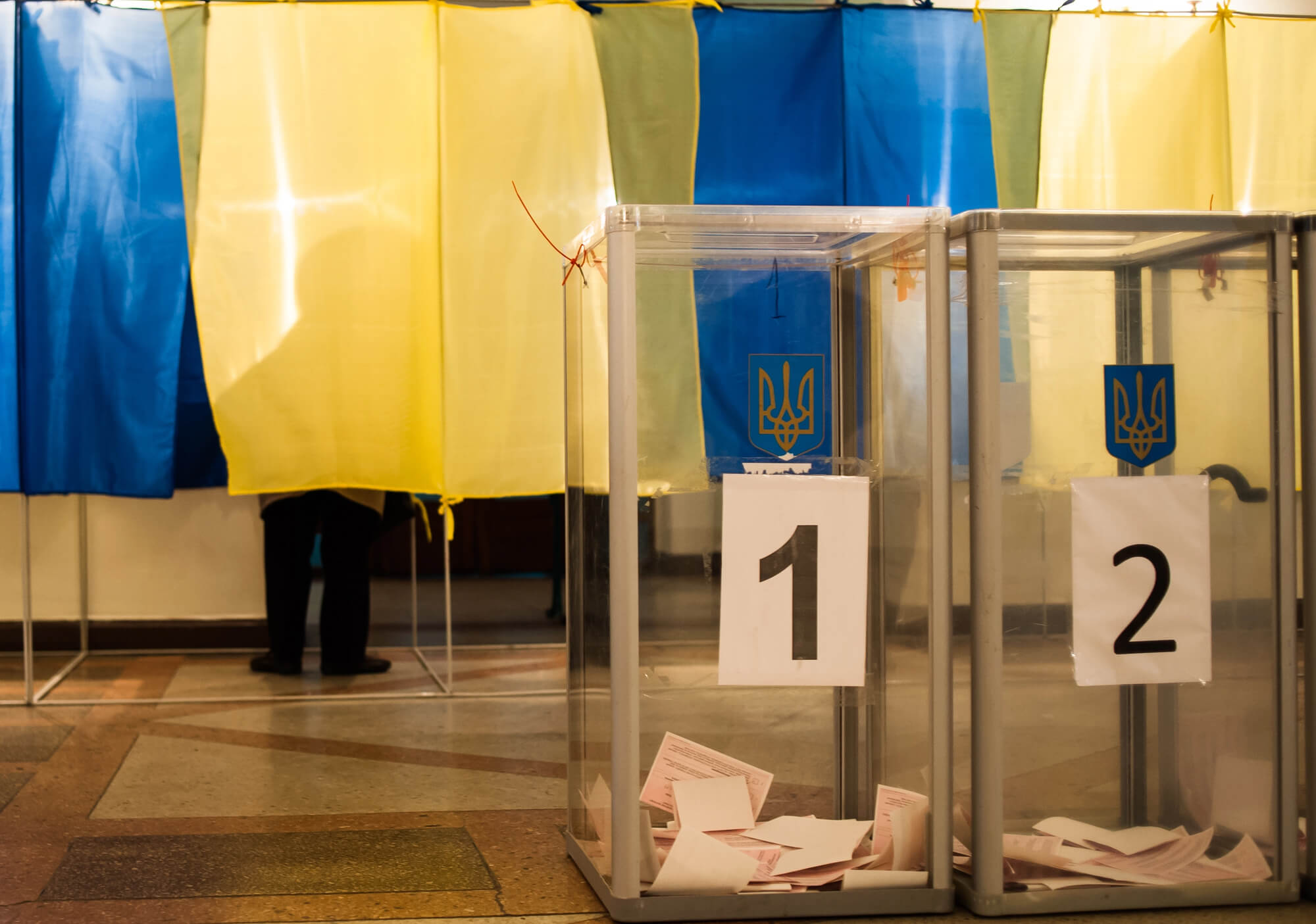Citizens would have nothing to do at polling stations without members of district election commissions (DECs), who provide and count ballots, establish voting results, and perform dozens of other important election procedures. The commission members’ quality of work affects voters’ assessment of fairness of the election process [1], correctness of counting of their votes [2], as well as the general confidence that the election results [3].
When the problem is under control
The presence of members of electoral commissions at polling stations on election day is taken for granted. However, problems with their mobilization arise more often than it may seem, both in Ukraine and in the world. In the 2004 US election, only one and a half of the required two million commission members were recruited, and 50% of election administrators admitted that they had difficulty finding enough people to work in the commissions. In the 2014 presidential election in Ukraine, due to a lack of DEC members, creation of more than 4,000 election commissions was under threat, 14% of their total number. The lack of commission members on the eve of the second round of voting in the 2019 presidential election forced the Central Election Commission to openly appeal to voters to “support the election process by participating in the work of the commissions.” Understaffing of election commissions can lead to queues at polling stations on election day, mass disorders and errors in counting ballots.
Generally, the existing problems with the staffing of the election administration did not threaten organization of elections per se. Governments and local authorities had been finding solutions that allowed polling stations to be opened on election day. Even with fewer commission members than required.
When the problem gets out of control
The situation has changed with the outbreak of the Covid-19 pandemic. In the Wisconsin, seven thousand commission members of the thirty thousand required were missing a week before the voting day. Particularly critical was the situation in Milwaukee, where only five polling stations out of one hundred and eighty were opened on election day due to the lack of commission members. 90% of election commission members refused to work in the June primaries in Kentucky. So instead of the traditional 3,700 election commissions, only 200 were formed there by election day. Apart from Wisconsin and Kentucky, problems with shortage of people in commissions occurred in Georgia, Illinois, Maine, New York, Ohio, Pennsylvania, South Carolina, and Alaska.
In the presidential election in Poland on May 10, 2020, only half of the 250,000 required DEC members were mobilized. A joint study conducted by the Union of Polish Cities and the Union of Polish Metropolises showed that in 51 of the 176 (29%) surveyed Polish cities, no member of the district commission was appointed. In Warsaw, only 1,000 of the 4,000 required DEC members were recruited.
These examples show that the pandemic is a serious challenge to the full mobilization of members of election commissions. During pandemics, people avoid workstations and crowded places due to fear of infection [4], and quarantine and social distancing practices are the most widely used strategies to minimize the spread of infection [5]. Therefore, holding elections in a pandemic requires mobilization of a large number of people under the least favorable conditions. Risks to health and life are a serious factor that can affect people’s willingness to participate in the work of election commissions.
Take control of the problem: the experience of the United States
The primaries in the United States which lasted six months from late winter to late summer 2020, allowed us to see and assess the seriousness of election commission members’ shortage problem. Even during the primaries, some states began to involve soldiers of the National Guard in the commissions. However, this did not solve the general problem of mobilizing DEC members for the November 3, 2020 presidential elections.
The public and corporate sectors have taken partial responsibility for mobilizing people to commissions. Princeton University students and Denver East High School students founded the PollHero project, which aimed to mobilize 1,000 commission members. At the beginning of October, they managed to attract more than 28 thousand people. Another initiative, Power the Polls, launched in July, aimed to recruit 250,000 commission members. At the beginning of September they mobilized 350 thousand, and at the beginning of October – 530 thousand people. Both initiatives actively use Instagram, Snapchat, Tik Tok social media, as well as collaborate with bloggers and opinion leaders. At the same time, large American companies – GAP, Levi Strauss & Co., Microsoft Corp., Old Navy, Target Corp., UBER Technologies and others – encourage their employees to work in election commissions. They are offered to keep the salary at the company for the day of work on a commission.
However, in the USA, polling on election day is only one option to cast your vote. Voters can also use early or postal voting. These mechanisms are available to voters in almost all states. The New York Times estimates that the record eighty million voters will use postal voting this year, twice as many as in the 2016 elections. Of course, this will significantly reduce the burden on polling stations and, consequently, commission members on election day. But nevertheless, maintaining the level of turnout of 2016, almost sixty million voters will come to the polls, where DEC members should be waiting for them. Therefore, the efforts of Americans to mobilize commission members are understandable and justified.
What are we facing?
Local elections in Ukraine are scheduled for October 25. According to the election schedule, by October 9, the regional election commissions had to form almost thirty thousand district election commissions. No later than October 11, all these commissions were to hold their first meetings. Given the provisions of the Electoral Code on the number of commission members in small (up to 500 voters), medium (500 to 1,500 voters) and large (more than 1,500 voters) polling stations, 350-470 thousand people are required for DEC staff. In Ukraine, the subjects of the election process, political parties and candidates, are responsible for the mobilization and nomination of commission members. The main burden of finding people in the commission lies with the parliamentary parties. They are guaranteed a quota for two commission members in each DEC. Weakness and underdevelopment of local structures of most of the parties negatively affect the mobilization of commission members. It is a common practice to submit people to the commission without their consent. This is done in order not to lose the quota in commissions. As a result, after the formation of the commissions, parties are replacing commission members en masse. Such replacements last until the day of voting.
The peculiarity of local elections is that the formation of the lower level of election commissions is decentralized: they are formed by hundreds of city, district in cities, rural and township territorial commissions. As a result, due to the lack of generalized data, it is difficult to immediately assess whether there is a shortage of DEC members and, if so, how threatening its overall scale is. As of 13 October, there was no information on the understaffing of DECs on either the CEC‘s official website or on the commission’s official Facebook page. This can be interpreted in two ways – as the absence of a problem or as the lack of information about the problem. Given the uncertainty and lack of time, it will most likely be possible to see the full picture with the staffing of commissions on the day of voting at the polling stations. However, there are already the first signs of a lack of commission members. The head of the Ivano-Frankivsk city territorial commission, Andrii Petryk, stated that “political parties did not submit enough candidates to DECs, and most commissions were formed in a minimal composition.” Andrii Lozynskyi, the head of the Lviv regional commission, informed that “due to the coronavirus, not all commissions are staffed, because some people are sick.”
Given the negative experience of other countries and the dynamics of the pandemic in Ukraine, it is necessary to prepare in advance for the surprises on election day. Because if the problem turns out to be real, there will not be enough time to solve it on election day. For example, regional commissions may form a reserve of DEC members. And if necessary, involve people from this reserve to work on commissions with staffing problems on the eve or on election day.
Although the Electoral Code does not explicitly provide for such a reserve, there is still the following rule: “If necessary, in order to ensure the proper preparation and conduct of elections by district election commissions, including on election day, the regional election commission may increase the composition of the district election commission to its maximum number established by part three of this article at any time before election day on the proposal of the chairman of the corresponding regional election commission on the basis of proposals of the members of this commission” (Article 204). To use it, you need to have pre-engaged people who are ready to quickly join commissions. The practice of electoral reserves exists, for example, in Northern Ireland.
Electoral processes and practices are changing under the influence of the Covid-19 pandemic. Countries are adapting their electoral systems to the new conditions and challenges. Their efforts are aimed at guaranteeing voters a full and safe vote. This requires a capable and functioning election administration that can organize the process of expressing peoples’ will.
Bibliography
[1] Hall, Thad E, J. Quin Monson, and Kelly D Patterson. 2009. “The Human Dimension of Elections: How Poll Workers Shape Public Confidence in Elections.” Political Research Quarterly 62(3): 507–22.
[2] Atkeson, Lonna Rae, and Kyle L. Saunders. 2007. “The Effect of Election Administration on Voter Confidence: A Local Matter?” PS – Political Science and Politics 40(4): 655–60.
[3] Claassen, Ryan. L., David B. Magleby, J. Quin Monson, and Kelly D. Patterson. 2013. “Voter Confidence and the Election-Day Voting Experience.” Political Behavior 35(2):215–35.
[4] Madhav N, Oppenheim B, Gallivan M, et al. Pandemics: Risks, Impacts, and Mitigation. In: Jamison DT, Gelband H, Horton S, et al., editors. Disease Control Priorities: Improving Health and Reducing Poverty. 3rd edition. Washington (DC): The International Bank for Reconstruction and Development / The World Bank; 2017 Nov 27. Chapter 17. ncbi.nlm.nih.gov/books/NBK525302
[5] Ferguson, Neil M. et al. 2005. “Strategies for Containing an Emerging Influenza Pandemic in Southeast Asia.” Nature 437(7056): 209–14.
Attention
The authors do not work for, consult to, own shares in or receive funding from any company or organization that would benefit from this article, and have no relevant affiliations



